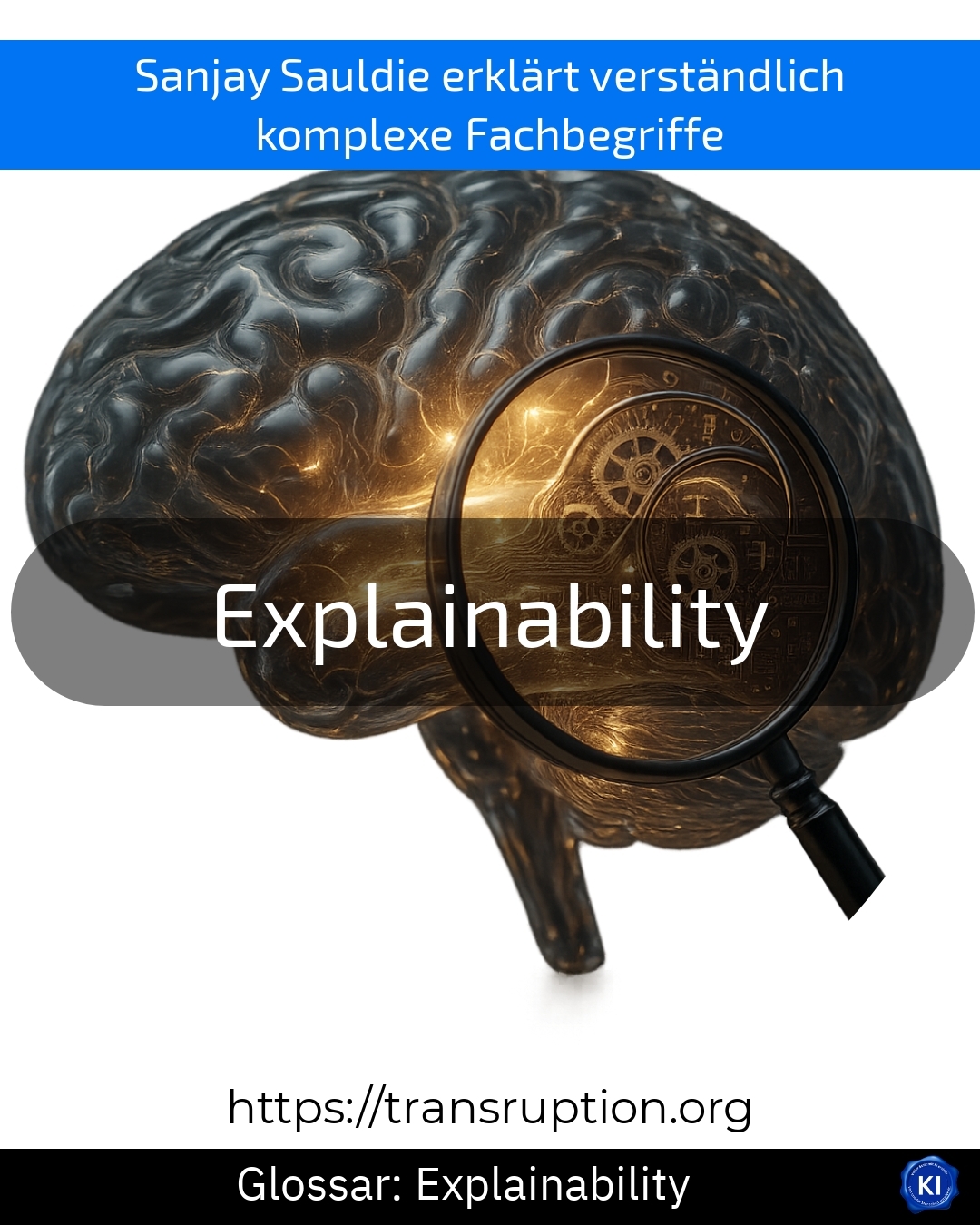The term explainability is particularly important in the fields of artificial intelligence, big data, smart data and digital leadership. It describes how well one can understand how an artificial intelligence, a computer programme or a complex data model has arrived at a decision or a result.
AI systems often act like a "black box": they provide an answer, but no one knows exactly how it was arrived at. This can be problematic when it comes to important decisions, such as loan applications, medical diagnoses or application procedures. Explainability ensures that such decisions are comprehensible and transparent.
A simple example: an algorithm decides whether someone gets a loan. Without explainability, the applicant does not understand why their application was rejected. With explainability, the bank can explain: "The application was rejected because the income is too low and there have been payment arrears in the last six months." This makes the decision-making process fairer and easier to understand.
Explainability strengthens trust in AI-based technologies and helps companies to handle data and automation responsibly. This is particularly important in the digital transformation.















